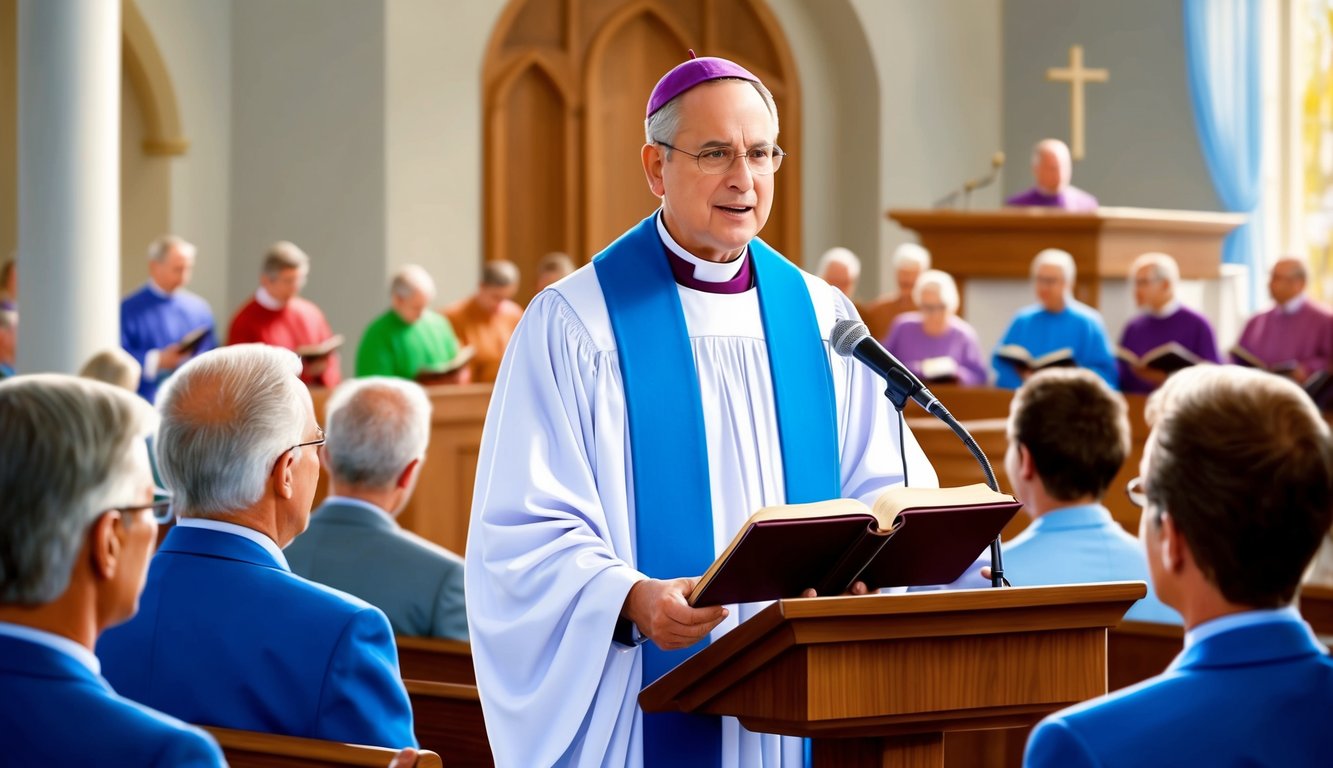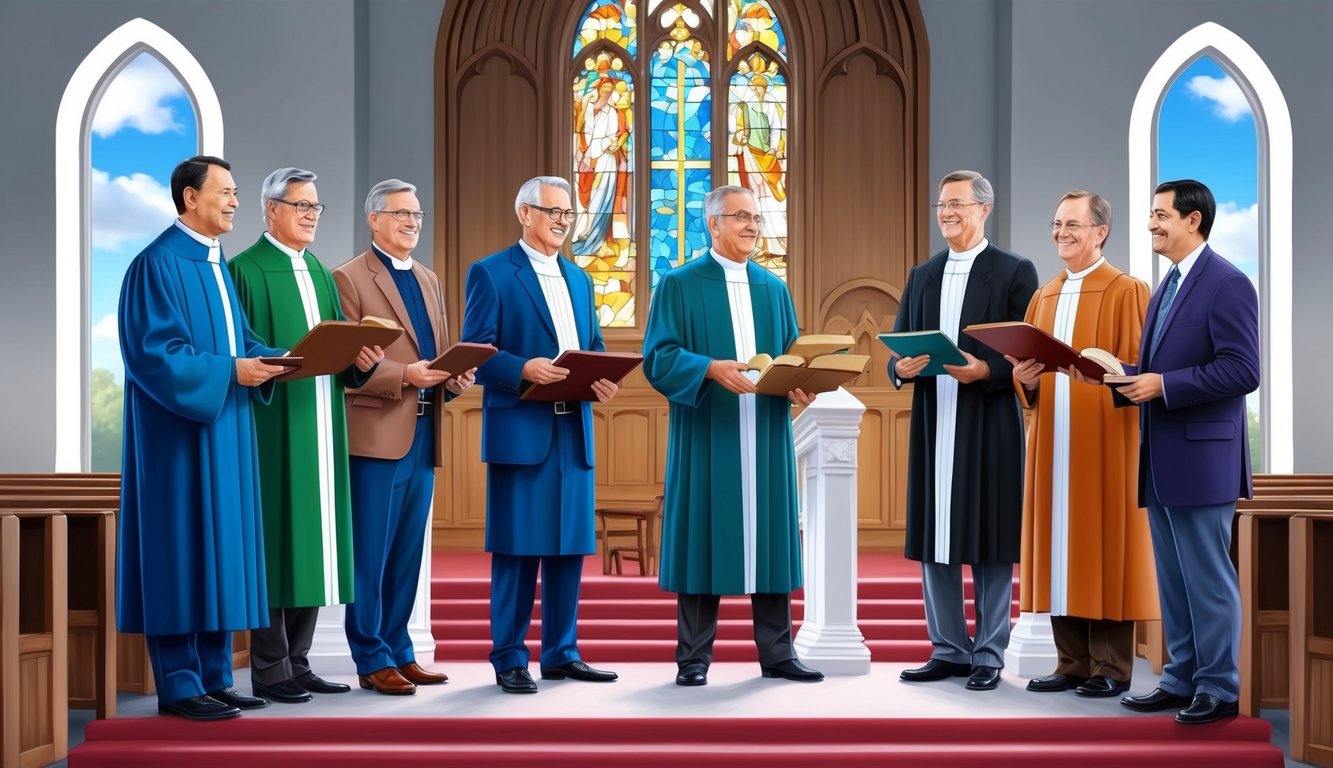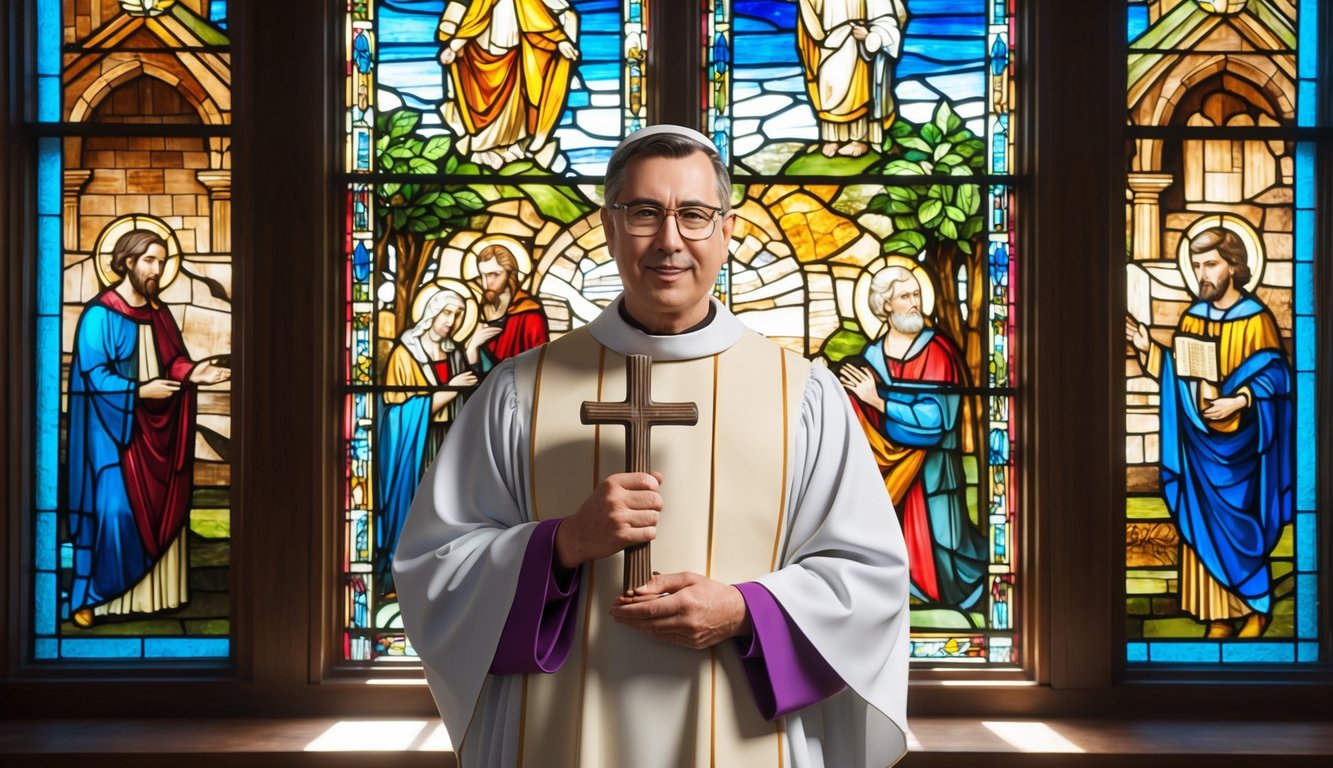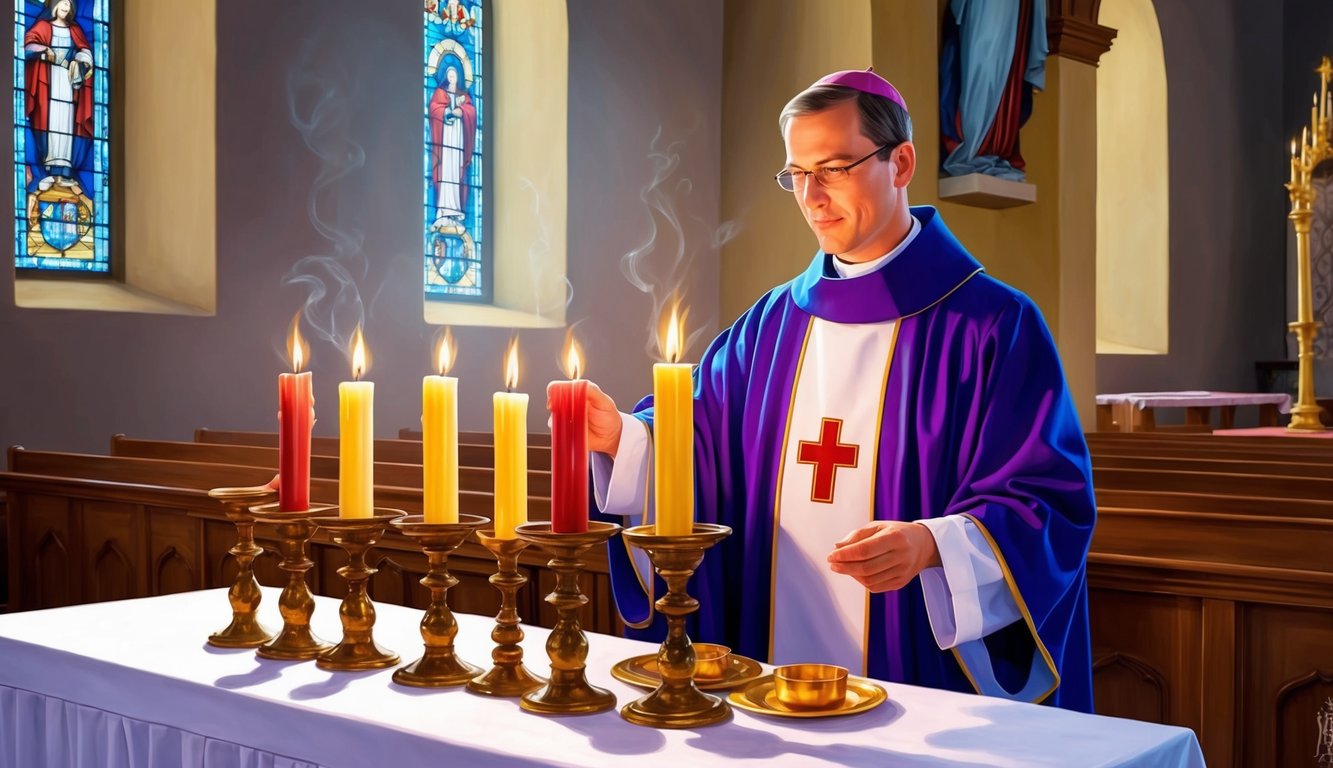Don’t Miss Out On This Unique Astrological Opportunity
Are you tired of spinning your wheels and getting nowhere? Simply put, you’re out of sync: you’re out of alignment with your astral configuration.
But: there’s a kind of map that can help you reclaim your alignment. Think of it as your own personal blueprint to success and happiness: a blueprint that will help you live your most amazing life.
Get started here.
Being a deacon in a church is an important role that involves service and leadership.
It’s a position often filled by people who are deeply committed to their faith and their community.
As a deacon, you play a vital part in supporting your church’s mission and assisting the pastor in various tasks.
In your role, you might help with organizing community events, supporting church members, or assisting during services.
Each task you undertake helps to build a strong, supportive community.
You’re not just a helper; you’re a vital part of making sure things run smoothly.
A deacon’s responsibilities are rooted in the teachings of the Bible. In fact, the early church appointed deacons to serve when the apostles needed help with daily tasks.
This means that being a deacon has a strong biblical foundation, making your work spiritually significant and rewarding.
The Role of a Deacon
Deacons play a vital part in the Christian church, focusing on service and support to both the community and the church structure.
This role has evolved through history and continues to adapt to modern needs.
Historical Context of Deacons
In the early Christian church, deacons were responsible for service and care.
Their role originated in the New Testament, particularly in Acts 6, where seven individuals were chosen to distribute food and resources.
These deacons ensured that the apostles could dedicate their time to prayer and teaching.
During the Middle Ages, the role of deacons shifted.
It became more of a transitional role on the path to priesthood.
This historical shift led to a narrowed focus on liturgical duties, overshadowing the important service aspects of the position.
Deacons in the Modern Church
Today, the deacon’s role varies across different denominations.
In many cases, deacons still emphasize serving the community.
They may visit the sick, support the needy, and assist at church services.
Their service goes beyond charity and directly addresses the needs of their congregation.
Some churches empower deacons with leadership roles, allowing them to shape church policies and programs.
This broader scope acknowledges the unique contributions of deacons to church life and embraces their potential to serve as bridge-builders within their communities.
The modern diaconate offers a versatile ministry that fulfills essential needs.
The Diaconate and Church Structure
The office of deacon is essential to church structure.
It provides a foundation of service and care that supports other church functions.
Deacons can assist priests and pastors with liturgical duties, allowing the clergy to focus on preaching and spiritual guidance.
Deacons often help manage church programs, organize community outreach, and ensure that the church remains connected with its community.
Their involvement strengthens the church, creating a supportive environment where everyone can flourish.
The role of a deacon continues to adapt, providing the structure necessary for a dynamic and responsive church community.
Qualifications and Duties

Understanding the role of a church deacon involves exploring their spiritual character, administrative functions, and commitment to community support.
Each area plays a significant part in shaping how deacons serve their church and fulfill their responsibilities.
Personal and Spiritual Qualities
A church deacon must be a person of strong character.
In 1 Timothy 3:8-13, it states that deacons should be honest, faithful, and live with a clear conscience.
Being trustworthy and respectable is key to maintaining the mystery of the faith.
Deacons must demonstrate self-control and avoid excessive indulgence in behavior like drinking or chasing dishonest gain.
Integrity in personal and family life is essential.
A deacon should manage their household well, showing dedication to their spouse and family as this reflects their capability to serve the church community effectively.
The blessing of a strong personal life supports the spiritual growth necessary for their duties.
Administrative Functions
Deacons also have important administrative roles within the church.
They often handle the organization of church activities and the management of resources.
This can include taking care of financial matters, maintaining facilities, or ensuring smooth church services.
Being adept at administrative tasks requires planning and coordination skills.
Deacons must communicate effectively with church staff and members to support various functions.
Their ability to organize helps the church operate efficiently, allowing other leaders, like pastors, to focus on spiritual teaching and guidance.
Support and Benevolence Work
Support and benevolence are vital aspects of a deacon’s duties.
Deacons are often at the forefront of assisting those in need within the church and the broader community.
Whether it’s organizing food drives or visiting the sick, their work is rooted in compassion and service.
Deacons help ensure that resources are shared fairly and authentically.
Their actions reflect their commitment to the teachings of Christianity, providing support that embodies the church’s mission.
By engaging in these acts of service, deacons bless their community and demonstrate the church’s dedication to love and care.
Ordination and Training
When becoming a deacon, there is a specific path that involves both ordination and ongoing training.
This journey includes guidance from church leaders and educational opportunities to deepen your understanding and enhance your skills in serving the church.
The Ordination Process
Ordination as a deacon involves a sacred ceremony marking your entry into a life of service.
Often overseen by a bishop, this ceremony includes receiving sacred orders, which symbolize your new role within the church.
According to the Porvoo Communion, ordination typically takes place during a Sunday service, emphasizing your commitment to the community.
The Second Vatican Council highlighted the importance of deacons in the sacramental life of the church.
This role can be permanent or transitional, with some deacons eventually becoming priests.
Your ordination is a significant spiritual milestone, emphasizing dedication and readiness to serve.
Continued Education and Formation
Even after ordination, continued education is vital.
Training often focuses on spiritual formation, liturgical duties, and pastoral care.
You may engage in workshops, retreats, or coursework to expand your abilities and deepen your faith.
In the Church of England, ongoing training helps you remain effective in your ministry.
By participating in continued learning, your growth as a deacon never stops.
This ongoing formation helps you adapt to the evolving needs of your congregation and better serve the wider community.
Such dedication ensures you remain a vital part of the church’s mission.
Deacons in Community and Service

In the church, deacons play a central role in connecting the congregation with the broader community.
Their focus is on service, meeting both physical and spiritual needs, and collaborating with church leaders.
Community Engagement
As a deacon, you act as a bridge between the church and the wider community.
Your efforts help to foster unity and understanding.
This might involve organizing community events or collaborating with local organizations.
By engaging with the community, you address the various needs and concerns of people.
This active participation helps build trust and fosters a sense of belonging, where community dynamics emerge through shared experiences and collective efforts.
Encouraging open dialogue and cooperation ensures that diverse voices are heard and included in decision-making processes.
Over time, these interactions strengthen relationships and create a more connected and supportive environment.
Your role not only supports the church but also ensures that the congregation actively contributes to community life.
Through your actions, you demonstrate the values of compassion and service, reflecting the church’s mission to reach out and make a positive impact.
Outreach and Helping the Needy
Deacons are often at the forefront of outreach efforts, focusing on helping the needy.
Your work includes supporting the poor and widows and addressing spiritual needs.
Initiatives might involve food drives, collecting clothing, or providing other essential resources.
This commitment makes a significant difference in people’s lives.
Deacons also play a role in listening and providing comfort to those in distress.
By building personal connections, the work encourages a sense of belonging and hope.
Your dedication to outreach is a testament to the church’s responsibility to care for everyone, regardless of their circumstances.
Working with Other Church Leaders
Collaboration with other church leaders, such as pastors and elders, is vital for your role.
You work together to ensure the church serves its members and the community effectively.
Regular meetings and open communication allow you to plan and implement various programs.
This teamwork results in a more comprehensive approach to addressing the needs of the congregation and the larger community.
By sharing responsibilities and ideas, you help create a strong leadership team.
This cooperation not only strengthens the church but also enhances its ability to extend meaningful help and support to those who need it most.
Theological Significance

The role of a deacon in the church is deeply intertwined with the spiritual life and teachings of Christianity.
Key aspects include their responsibilities in sacraments and ceremonies, as well as in teaching and preaching the Word of God.
Sacraments and Ceremonies
As a deacon, you may play a significant role in church sacraments and ceremonies.
Sacraments like baptism and the Eucharist are central to Christian faith and practice.
While you may not perform these sacraments like a priest would, you assist in facilitating and preparing these holy rites.
Your involvement in these ceremonies helps the congregation experience these sacred moments more fully.
Your participation underscores your commitment to sharing Christ’s love.
Helping with the Eucharist, for example, allows you to be a part of sharing the body and blood of Christ with others.
Through these sacred actions, you support the community’s spiritual journey and deepen their faith in the gospel.
Teaching and Preaching Responsibilities
In your role, teaching and preaching are vital.
As a deacon, you help interpret Bible scripture, making it relevant and accessible to the congregation.
Your teachings encourage faith development and connect everyday life with Christian principles.
Preaching involves sharing the gospel with energy and clarity.
Here, delivery is key.
In your sermons, you bring the Word to life, encouraging others to live by its guidance.
By sharing the lessons and stories of the Bible, you inspire others to follow Christ and grow their relationship with Him.
This aspect of your role emphasizes spreading the Christian message through prayer and thoughtful dialogue.



